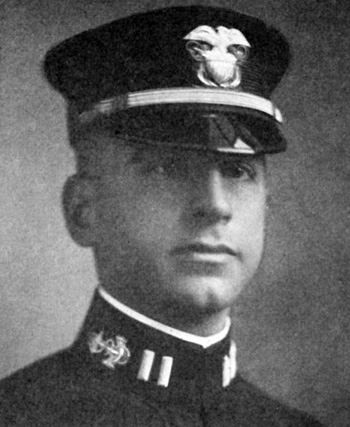
|
Edouard V.M. Izac |
 |
|||
| Rank, Service | ||||
Lieutenant Commander, U.S. Navy |
||||
| Veteran of: | ||||
|
||||
| Tribute: | ||||
Edouard Isaacs was born on December 18, 1891, in Cresco, Iowa. He graduated from the U.S. Naval Academy in 1915 and served on the battleships USS Kansas and USS Florida until 1917, when he served aboard the USS President Lincoln, a former German passenger liner fitted out as a troop transport. LT Isaacs was captured when USS President Lincoln was torpedoed and sunk by the German Submarine U-90 on May 21, 1918. He was taken to Germany as a Prisoner of War, making several escape attempts in the process. Isaacs finally escaped from a prison camp on October 6, 1918, made his way to Switzerland, then Paris, then London, and finally arrived in Washington, D.C., on November 11, 1918. LT Isaacs remained in the Navy after the war, serving at the Naval Gun Factory in Washington, D.C., until he was retired for disability in May 1921. Isaacs changed his family name to "Izac" in July 1925 and was advanced to Lieutenant Commander on the retired list in January 1936. Edouard Izacs served in Congress as a U.S. Representative from California from 1937 to 1947. He died on January 18, 1990 and was buried at Arlington National Cemetery. |
||||
|
||||

